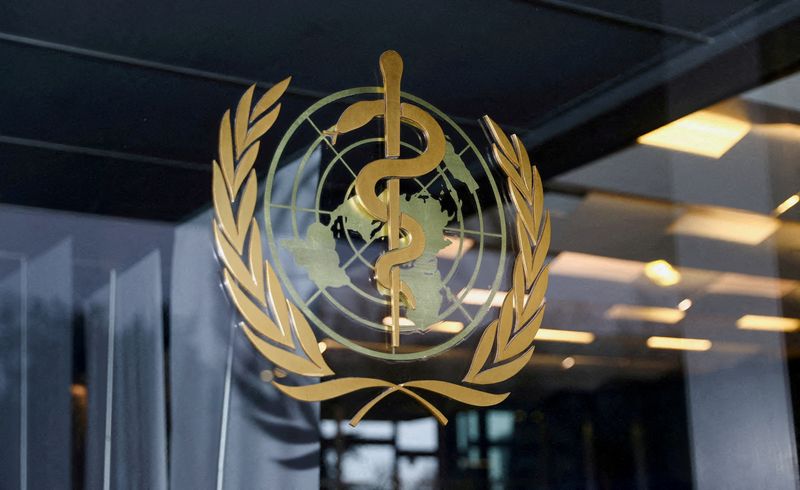By Emma Farge
GENEVA (Reuters) - Negotiations on new rules for dealing with pandemics will begin at the World Health Organization on Thursday, with a target date of May 2024 for a treaty to be adopted by the U.N. health agency's 194 member countries.
A new pact is among more than 200 recommendations for shoring up the world's defences against new pathogens made by various reviewers following the COVID-19 pandemic that has killed more than 6.2 million people in two years.
The WHO itself is facing calls for reform after an independent panel described it as "underpowered" when COVID-19 struck, with limited powers to investigate outbreaks and coordinate containment measures.
A Washington-led effort to build a global pandemic prevention fund hosted by the World Bank is among initiatives that could determine the future of the 74-year old body.
WHAT IS THE PANDEMIC TREATY?
The WHO already has binding rules known as the International Health Regulations (2005) which set out countries' obligations where public health events have the potential to cross borders. These include advising the WHO immediately of a health emergency and measures on trade and travel.
Adopted after the 2002/3 SARS outbreak, these regulations are still seen as functional for regional epidemics like Ebola but inadequate for a global pandemic.
Suggested proposals for the pact include the sharing of data and genome sequences of emerging viruses and rules on equitable vaccine distribution.
The European Union is pushing for a ban on wildlife markets and incentives for reporting of new viruses or variants, an EU official told Reuters.
Member states have an August deadline to decide on an initial version of the pact, which is backed by WHO director-general Tedros Adhanom Ghebreyesus. He is likely to be elected unopposed for a second term in May.
It would be only the second such health accord after the 2003 Framework Convention on Tobacco Control, a legally-binding treaty which aims to reduce smoking via taxation and rules on labelling and advertising.
HOW DO COUNTRIES VIEW THE PACT?
The EU proposed the treaty and is its biggest backer, with support from Britain, Indonesia, Kenya and others.
The United States will take part in the talks but has opposed a binding treaty. India and Brazil have also voiced reservations.
With so many member countries involved, securing agreement is likely to be tricky.
HOW WOULD IT WORK?
Because its legal nature remains to be defined, in WHO jargon the pact is an "instrument", of which there are three types -- recommendations, regulations and conventions. Of those, regulations are automatically legally binding for members unless they explicitly object.
It is not yet clear how the 2005 regulations and the new pandemic treaty might fit together.
One suggestion is that they should be complementary, so that existing rules apply to local outbreaks with the treaty response only kicking in if the WHO declares a pandemic -- something it does not currently have a mandate to do.
It remains to be determined whether negotiators will include compliance measures such as sanctions.
WHAT OTHER REFORMS ARE IN THE WORKS?
Separate talks on a U.S. initiative to overhaul the 2005 rules are taking place this week.
Washington's proposals aim to boost transparency and grant the WHO quicker access to outbreak sites. Several diplomats said they are likely to prove too ambitious, with opposition from China and others expected on national sovereignty grounds.
China did allow WHO-led expert teams to visit the COVID-19 epicentre in Wuhan, but the WHO says it is still withholding clinical data from early cases that may hold clues about the origins of the SARS-CoV-2 virus.

Reforms to the WHO funding structure to make it more sustainable and flexible in the event of a pandemic are being discussed by WHO member states in another working group.
So far the United States, which until the pandemic was the WHO's top donor, has opposed plans to increase member countries' annual contributions.